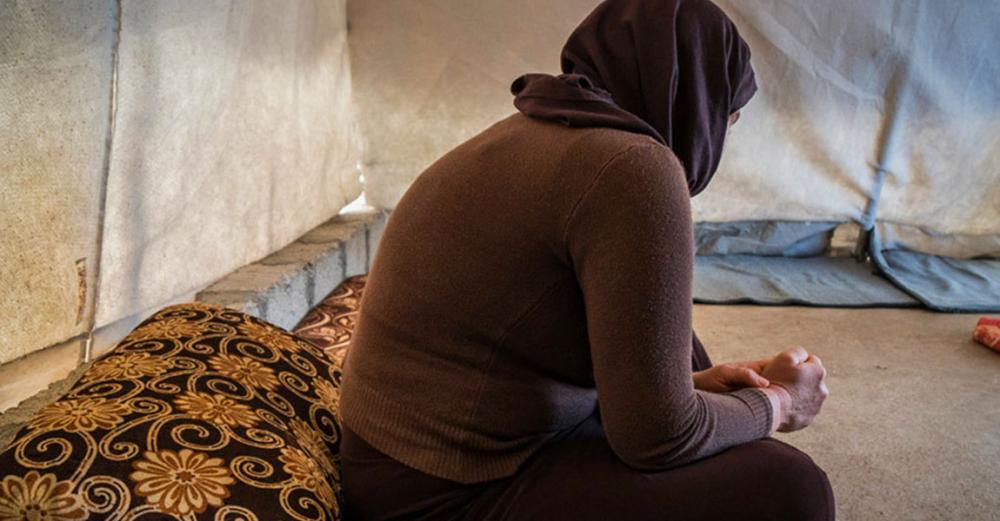Just Earth News | @justearthnews | 17 Jul 2020, 07:16 am Print

New York: Religious leaders from communities across Iraq called for greater “healing and reconciliation” during a UN-organized event on Thursday, reaffirming their commitment to support survivors of crimes perpetrated by ISIL terrorist fighters.
Key signatories of a landmark Interfaith Statement on the Victims and Survivors of ISIL – representing Islam, the Christian church and other faiths – joined the discussion online, held under the auspices of the UN Special Adviser who also heads up the Investigative Team to Promote Accountability for Crimes Committed by Da’esh / ISIL (UNITAD) and co-hosted by the international coalition, Religions for Peace, which consists of 90 national and six regional Interreligious Councils.
The event was made possible by the UN Office on Genocide Prevention and the Responsibility to Protect, headed up by Under-Secretary-General and Special Adviser, Adama Dieng.
Mr Dieng said it was and honour to be accompanied by religious representatives "whose tireless work, days after day, is making a difference in the lives of all Iraqis. Their leading efforts for justice, peace and reconciliation constitutes an example for all society to follow."
Many still vulnerable: Dieng
He noted that many of the challenges for peace in Iraq did not start with the emergence of ISIL nor have they ended with its military defeat: "Many communities still feel vulnerable and consider that not enough is being done to protect not only their linguistic, religious or cultural heritage, but their very physical integrity. Addressing long-term grievances is one the most effective ways of prioritizing prevention of human rights violations, including atrocity crimes."
He noted that Iraqi society has experienced "the tremendous cost of not addressing long-term grievances. It must therefore work to build and strengthen an inclusive society, where diversity is not perceived as a flaw but as an asset.
The prevention of genocide chief said he was convinced that Thursday's Interfaith Statement on Victims and Survivors of ISIL constitutes "an essential step in this direction, in line with the Plan of Action for Religious Leaders and Actors to Prevent Incitement to Violence that Could Lead to Atrocity Crimes. I am proud to support it and commit my Office’s assistance in ensuring its full implementation."
The participants condemned ISIL’s ideologically-driven acts of terror as being “contrary to the core principles of our religious faiths as well as the fundamental values of humanity”.
"What can religion be if not for peace?", UNITAD Head, Karim Asad Ahmad Khan QC said to the meeting.
Attacks ‘far from over’
The UNITAD chief, expressed gratitude to Iraq religious leaders for their courage “in these difficult times” as they together support survivors and victims of ISIL.
Stressing that as ISIL attacks are “far from over” across the world, he exhorted representatives of all religions to denounce the group's ideology as alien to religious values and those of all humanity.
According to Mr. Khan, the only way to respond to groups like ISIL, is for religious leaders to support each other and each other’s communities.
"Whenever people seek to weigh the worth of humans by their own belief, there should be alarm", flagged the Special Advisor, adding that everyone must "start to implement a zero tolerance to intolerance."
No religion spared
All religions across Iraq have been impacted by ISIL atrocities, the signatories said, as they underlined the importance of supporting survivors within their own communities.
“In showing ISIL crimes are divorced from the values of all faiths, Iraqi religious leaders have exposed crimes of ISIL”, upheld the UNITAD chief.
At the same time, the participants also noted that their brutality had prompted “acts of heroism” in which religious communities rose up in defence of those from different religious and ethnic backgrounds.
The most vulnerable
In recognizing the “tremendous suffering” endured by victims of sexual and gender-based violence, the signatories underscored their commitment to ensuring that those individuals are “fully supported” and do not suffer from stigmatization.
And for the “innocent children of God” impacted by ISIL, they stressed that “whatever pain these children have suffered, they are blameless” and called on the terrorists to return every child they have abducted to their rightful families.
Delivering justice
Justice will only be delivered for ISIL victims by ensuring that those who fought in its name, are held responsible for their actions, and that people forced to flee the violence, can return home safely.
To this end, they underscored their “strong collective support” for UNITAD’s work while stressed the importance of exposing ISIL’s offenses in a court of law.
“Investigating the cases of disappeared persons and those abducted” not only delivers justice for victims but also promotes “understanding of the severity and scale” of the violence and prevents “future revisionism”, maintained the signatories.
In closing, they highlighted their “common commitment” and “collective stamina” to promote “justice, tolerance, reconciliation and forgiveness” as the most effective way to combat ISIL’s crimes in Iraq.
This also serves as “a key step in preventing the re-emergence” of any similar terrorist ideology or groups, said the religious leaders.
- India rejects allegations, urges Pakistan to tackle its ‘home-grown ills’
- Massacre in Islamabad: ISIS takes responsibility for deadly Pakistan blast
- Friday turns fatal: 31 dead, 169 injured in shocking Pakistan mosque blast
- Explosion at packed mosque in Pakistan turns Friday prayers into scene of carnage, 15 dead
- Security forces handicapped: Pakistan Defence Minister’s shock admission on Baloch violence





-1763561110.jpg)
